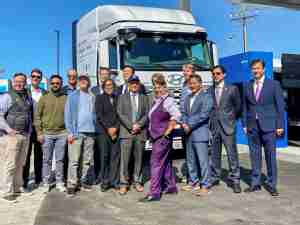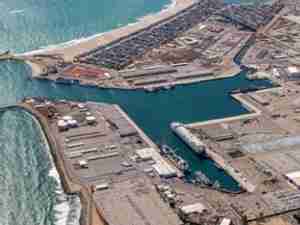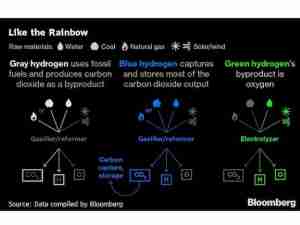Yesterday, the U.S. Enivornmental Protection Agency (EPA) gave stakeholders a "first look" at the agency's plans to implement a new $3 billion port emission reduction program. During a two-hour webinar, agency staff provided an outline of the newly named "Clean Ports Program," which was authorized in the Inflation Reduction Act of 2022 (IRA) as the "Grants to Reduce Air Pollution at Ports Program."
The law stipulates that funds must be used to purchase or install zero-emission port equipment or technology. The equipment/technology must be used at a port. Funds can also be used for planning related to equipment/technology purchase and installation. Grants will also fund climate action plans at ports. Eligible recipients are port authorities, state or local governments that have jurisdiction over a port, an air pollution control agency, or a private entity that is partnered with one of the above.
The EPA expects to issue a Notice of Funding Opportunity (NOFO) in February-March, 2024, with final awards by the end of the year. The entire $3 billion will be distributed in a single solicitation and award cycle. This is significant news. Ports will have only one shot at this money. For that reason, EPA staff is strongly urging stakeholders to prepare now.
Another significant announcement was EPA's intent to make eligible so-called "dry ports," or inland intermodal facilities that handle rail-truck transfer. This is a questionable decision and could result in significant resources being diverted away from seaports.
With regard to zero-emission technology (ZET) grants, EPA staff explained that it is their intent to fund a handful of mega projects in the $200-$500 million range. They will also fund many smaller projects but will require all projects to be at least $10 million in cost. The agency has not yet announced a cost share requirement, but is thinking of a 10%-20% non-federal cost share.
With regard to planning activities, the agency will require grant applications to be at least $100,000 and no more than $3 million. There will be no cost share requirement for planning grants.
It is important to note that because there will only be a single funding round, those seeking planning grants will not have a future funding cycle in this program to pursue implementation grants. Federal assistance for implementation will have to be pursued from other federal programs (there are several) or from non-federal sources. There is an option to pursue a joint planning/implementation grant from this program (which will be allowed). However, such a strategy would require considerable advance preparation.
EPA repeatedly stressed that community engagement will be required for all successful grant applications with an emphasis on environmental justice communities. EPA urged all those considering application to this program to begin working now to engage near-port communities in project development.
EPA provides “first look” at $3 billion Clean Ports Program
posted by AJOT | Nov 01 2023 at 12:31 PM | Ports & Terminals










